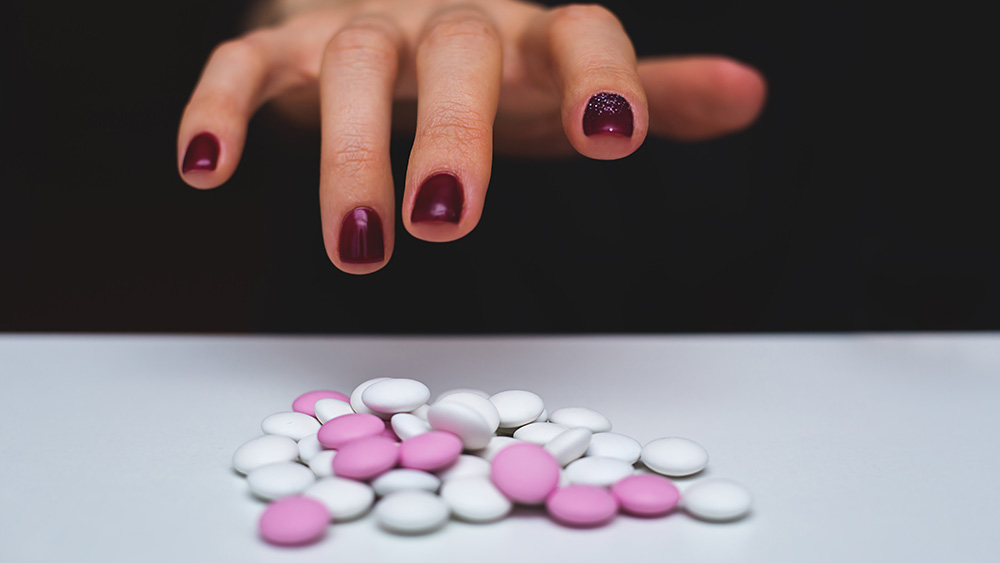Incompetent police arrest Florida man for “heroin possession” after field test finds positive result … but it turns out to be just laundry detergent
02/02/2019 / By Isabelle Z.

Imagine that the police claim to find $18,000 worth of heroin in your vehicle, and the next thing you know, you’re in jail with half a million dollars bond – even though you’re sure you never had the drug in the first place. Imagine spending the holidays – 41 days in total – behind bars only for police to later discover they were mistaken and the substance you had was laundry detergent.
This is what happened to 29-year-old Floridian Matt Crull. The man had been sleeping in his van outside a KFC restaurant, and when the police responded to a suspicious van alert, they found a “white powdery substance” in the driver’s side door in plastic with a hair tie wrapped around it. Although Crull insisted to the deputy that the bag contained Tide laundry detergent, the officer didn’t believe him.
The officer said that a field test proved the substance was heroin. When an incredulous Crull asked to see it, Deputy Steven O’Leary wouldn’t show him the actual test kit, instead showing a photo on his phone of a test he claims to have carried out. The next thing he knew, he was behind bars for 41 days, including over Christmas and New Year’s, before learning the substance was indeed legal.
Crull thought that perhaps the van, which he had purchased used just three weeks earlier, may have had some heroin in it from the previous owner, but it turned out that the laundry detergent was indeed what caused him to spend more than a month in jail. This wasn’t just a one-off incident, either; ten other people have been wrongly imprisoned by Deputy O’Leary, who said people were in possession of drugs that turned out to be legal substances. Although the Martin County Sheriff’s Department has not fired him, they are trying to distance themselves from him.
Support our mission and enhance your own self-reliance: The laboratory-verified Organic Emergency Survival Bucket provides certified organic, high-nutrition storable food for emergency preparedness. Completely free of corn syrup, MSG, GMOs and other food toxins. Ultra-clean solution for years of food security. Learn more at the Health Ranger Store.
Field tests are highly questionable, so why are they still used?
Field tests are disposable tests that cost around $2 and can be used by officers in an initial investigation when they suspect a person is in possession of drugs. The problem is they often yield false positives, and frightened individuals sometimes agree to plea deals before proper lab results come in.
A Georgia woman, for example, is currently suing Monroe County and the manufacturer of a field test that claimed the cotton candy she was carrying was actually meth, causing her to be arrested.
Another incident in Georgia saw a couple spend two weeks in jail over a baggie containing the woman’s folic acid capsules, which somehow tested positive for ecstasy in a field test but were later determined to indeed be the vitamins in question. The charges were dismissed, but the damage had already been done: The woman lost her job and the man missed his swearing-in ceremony for becoming a U.S. citizen.
An investigation by Fox 5 uncovered many similar incidents, like a breath mint being mistaken for crack and a headache powder being mistaken for cocaine. They report that the colors used to indicate the presence of drugs on these tests can be confusing, especially if someone has trouble distinguishing colors like dark red from purple. In Georgia, there is no mandatory training showing cops how to use the tests.
The New York Times reports that one common test uses a chemical called cobalt thiocyanate that turns blue when exposed to cocaine – but it also turns blue upon exposure to 80 other compounds, including household cleaners and acne medications. Factors like the outdoor temperature, street lighting, and the order in which the officer breaks open the tubes for the test can all impact the outcome.
It’s incomprehensible that people are going to jail for drugs they never possessed – all because of a flawed $2 test that is subject to a police officer’s interpretation. These cases show there’s a chance that something you carry in your pocket, purse or car could put you behind bars for all the wrong reasons.
Sources for this article include:
Tagged Under: drug possession, drug tests, drug war, false posiitive, field tests, incompetence, Liberty, Police, police state, police watch, stupid, Twisted, Tyranny, wrongful conviction



















